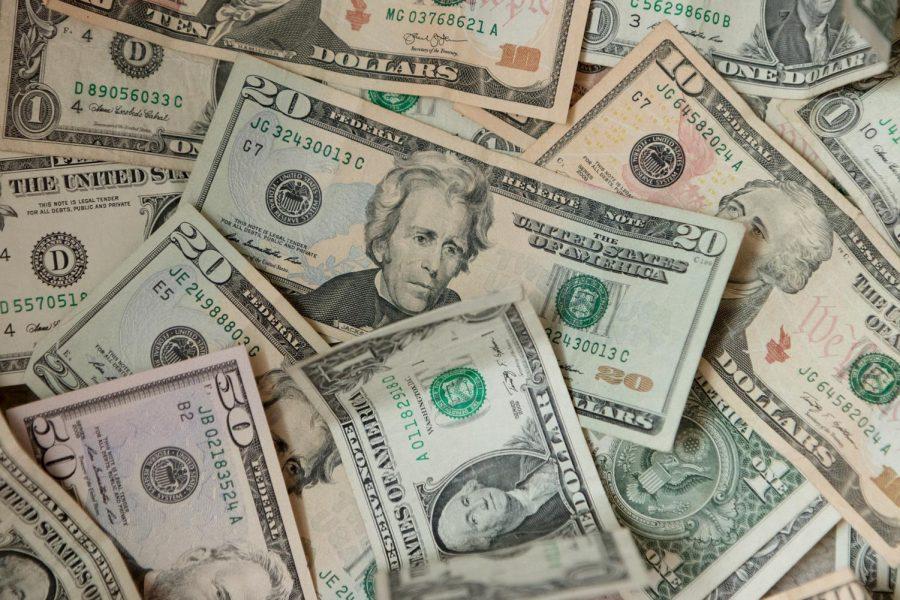Pitt students, alumni react to student loan debt forgiveness plan
A pile of cash.
September 7, 2022
Sarah Chu’s $25,000 undergraduate student loan debt hasn’t been paid off yet, and neither have the loans she’s taking out to attend the Rutgers School of Public Health, but she can already feel their weight lifting off her shoulders — at least, $10,000 worth.
“I haven’t filled out the forms yet, but the idea of that having 10K being canceled just feels really good, especially as a continuing [grad] school student,” said Chu, who graduated from Pitt last academic year.
President Joe Biden announced on Aug. 24 that single individuals who make less than $125,000 — or households who make less than $250,000 — will qualify for up to $10,000 in federal student loan debt cancellation. Pell Grant recipients meeting the same income requirements may qualify for up to $20,000. The application is set to open by early October.
While current students may qualify for the cancellation, Pitt must have disbursed their federal student loans before July 1 — therefore, no first-years will qualify. For students the Department of Education deemed dependents during the 2021-22 school year (different from a dependent claimed on federal taxes), parental income will determine eligibility.
Lily Young, a junior computer science major at Pitt, estimates that she will have accumulated $50,000 to $60,000 in debt by the time she graduates in 2024. Young said she often stresses about money, especially her debt.
“The debt is very stressful to me, like money is a big stress factor for me, especially being a college student,” Young said. “I literally am always focusing on what I’m spending in a day.”
But Young said being a computer science major helps with debt anxiety because it will improve her job prospects after graduating.
“I think I’m definitely in a minority where I’m not going to have to worry as much when I get out of college about getting a job,” Young said. “If I had a different major, I think I’d be much more concerned about being able to pay my student debt back.”
According to Forbes, more than half of undergraduates leave college with student loan debt, owing about $29,000 on average. A study from One Wisconsin Institute found that borrowers take 21.1 years on average to repay their student loan debt.
Young said she plans to apply for the student loan debt relief and it will have a significant impact on her financially.
“$10,000 is a lot, like, that’s huge,” Young said. “That would definitely make a big difference. I mean, that’s literally like, around one-fifth to one-sixth of it [her debt].”
Not every student has a favorable view of the plan. Nate Kegel, a Dietrich class of 2020 alumnus who will graduate from the University of Pennsylvania Carey Law School in spring 2023, said he supports debt forgiveness, but the plan’s means testing is not exclusive enough against future high earners such as himself.
“There’s about 700 people at my law school and 2,000 people in the MBA program at my school,” Kegel said. “Virtually all of them are going to take jobs that will exceed the means testing, but all of them are going to get the $10,000-$20,000.”
Since previous income determines eligibility instead of future income, Kegel said he will qualify for debt relief despite making roughly $230,000 per year when he starts working in corporate law next fall. He said it’s “unfair” that his student debt will become a tax burden for others in the U.S. who don’t have the economic advantages that come with his degree.
“Spreading the burden of my student debt on people who either didn’t go to college, or, you know, they made the choice to go to a less expensive school, maybe obtain more scholarships, it just seems unfair to me,” Kegel said.
Kegel, who said he will graduate with roughly $90-100,000 in debt from attending law school, said he will definitely still apply for the debt relief, despite his disagreements with it.
“I don’t think that there’s a reason for me not to [apply],” Kegel said. “I don’t really see any utility for myself in volunteering to pay extra taxes, so I’m gonna take the money.”
Chu said the economic instability that has come with the COVID-19 pandemic — which inspired a pause on student loan repayment, interest and collections through the end of this calendar year — makes this debt cancellation even more impactful.
“Being able to… have this money off, especially since we’ve been through a pandemic and financial instability, would be very helpful,” Chu said. “We’re still in this sense of financial instability nowadays.”
Student loan debt cancellation that makes college more affordable and accessible is a positive, according to Young, especially given the cost of higher education in the United States.
“In America we pay ridiculous amounts for education,” Young said. “I think college is kind of a way to keep poor people poor, and so I think like, any way to make education more accessible to people, or make it so that education isn’t such a need, I think those are great things to be able to do.”








